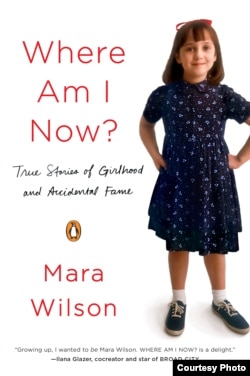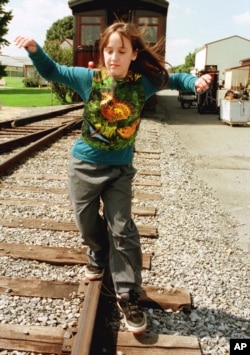When she was recognized by people, she used to feel worried, but now she's considering it an honor. That's how former child actor Mara Wilson feels about her early fame.
By her early teen years, the sheen of stardom was quickly wearing off, as it often does for many young actors. In "Where Am I Now? True Stories of Girlhood and Accidental Fame," her first book, the 29-year-old writer shares her experience and explains what it is like to be a child star.
Child actors have always been part of Hollywood. Cute and talented, these young celebrities draw fans and attention, but there's a downside to the adulation. Some find it hard to handle the stress of being in the spotlight, or losing the spotlight, and run into trouble, becoming addicted to drugs or alcohol, making bad life decisions, suffering nervous breakdowns.
Successful transitions
Of course, some of them, like Jody Foster and Natalie Portman, make a successful transition to adult roles, or become filmmakers like Ron Howard. Others leave the industry completely. Shirley Temple, for example, who started acting in 1938 at age 3, became a diplomat in the 1960s.
Wilson, who starred in "Matilda," "Mrs. Doubtfire" and "Miracle on 34th Street," took a different path. She left Hollywood for New York, where she attended New York University and is now a stage actress, a voice actress, a writer and a playwright.
Looking back, she says it is not easy to be a child star.
"I was still going to a public school," she recalled. "I was still going to Girl Scouts. I was still sharing a room with my little sister. So I was living this lower-middle-class existence and yet everybody knew my name. I was getting recognized in the airport, in the mall and at school. I was practicing my cursive handwriting on head shots and my mother had to tell me I couldn't give signed photos at school anymore because it was taking away from my work time. So it was this very strange mixed existence where I felt very much like I was torn between two worlds."
Beneficial, but stressful
However, she said she enjoyed acting and working with movie stars. Acting also allowed her to earn money that helped fund her education. But as she explains in her book, it also exposed her early on to stress.
"The thing about a film set is that you have to try to get a shot done as quickly as you can," she said. "You have to get it done perfectly. I think that definitely exacerbated my perfectionism. I was terrified to make mistakes. I think that also made me a worse actor, because you have to take risks as an actor, you have to try different things, and it didn't make me confident in myself. And I was an anxious child to begin with. So I started worrying more and more about everything."
Like many other child stars, Wilson also experienced rejection. She entered puberty while she was filming "Thomas and the Magic Railroad" and discovered she was no longer "cute enough" by Hollywood standards.
"I'd developed over the summer, and so when I came back to the set, people were kind of giving each other worried looks," she said. "And eventually they had to give me these bras that were like sports bra, to bind my chest because it looked different than what I had a few months earlier.
"I was humiliated, because at that age, the last thing you want is anybody paying attention to you. You feel very embarrassed about your body, very self-conscious. And I knew I wasn't going to be as cute as a lot of other actors I knew were. So Hollywood rejected me. Fortunately, it was at a time while I wasn't that happy about being in Hollywood either, but it was still hard to be rejected."
Parental role
Through sharing her own experiences, Wilson hopes to shed light on various behind-the-scenes stresses young stars face. Parents, she said, have a big role to play in preventing early fame from overwhelming their child's life.
"I think the children should want to do it," she said. "It should never ever be forced upon them by their parents. They need to develop other interests, other than acting. They need to be able to get an education. They need to save the money. The parents should not use the money. The child needs to get out when it stops being fun.
"A parent needs to be a strong figure in the child's life. They should never let the child support the family or become the parent. That is very, very dangerous. They need to monitor their child's social media usage. You don't know who they are interacting with. You need to be monitoring every single thing that they do, that they write, that they send."








